From Bare to Brimming: Blue Lake Transformation Video
February 20, 2021 - EdoStuff Aviation films the Blue Lake transformation, from bare to brimming.
Dalmacija Danas writes that the Blue Lake is one of the most beautiful Croatian lakes, reachable by a staircase, making it a favorite beach in the summer months. It often dries out, and football is traditionally played at its bottom.
Another natural charm of the area is the Red Lake, named after the red rocks at the edge of the lake. This karst pit is about 528 meters high, and the depth of the lake is about 281 meters, which, according to some data, could be the deepest lake in Europe. The Red Lake cannot be accessed due to the steep cliffs that surround it.
Imotski is known for these two natural pearls. However, an increasingly popular destination for adventurers and guests is Lake Ričice, better known as the Green Lake.
The lake is located near the village of Ričice in the northwest of Imotski Krajina. The lake is fed by the Vrbica and Ričina rivers. It was created in 1985 when a dam was built to prevent water penetration, and the water from the reservoir was to be used for irrigation. However, the project was never completed so a lake was created at this location.
In the last few months, the Imotski area, as well as the entire region, has gone through hydrologically extremely different periods. By November, we experienced an extreme drought, and the Blue Lake dried up as much as twice in late summer and fall. It has been raining since November, and the peak of rain was in December and January when precipitation records were broken locally.
Not only are the dry riverbeds full, the groundwater is at maximum capacity, and the level of the Imotski lakes is also extremely high.
Both situations were recorded by YouTuber EdoStuff Aviation, which compared the appearance of Imotski lakes during the peak of the drought to today. Incredible scenes!
To read more about lifestyle in Croatia, follow TCN's dedicated page.
Could Green Lake Further Develop Tourism in Imotski Area?
Septemeber 17, 2019 - Could the Green Lake be the next ‘Red’ or ‘Blue’ lake of the Imotski area?
Braco Cosic writes for Slobodna Dalmacija that the Green Lake in Ričice, located in the Proložac municipality, apart from its main purpose, which is to collect water for irrigation in the Imotski field, provides opportunities for additional exploitation.
Due to its beauty, the environment in which it is located, and its underwater resources, it is suitable for investments that would give some new and valuable content to the fast-growing tourism in the whole Imotski region. However, it could also bring back the youth to the otherwise displaced Ričice.
The Green Lake, along with the other widely known natural lakes in Imotski - Blue and Red, can certainly contribute to the development of this area, believe tourist forecasters. The lake has a capacity of up to 30 million cubic meters of water. In the most generous water flow conditions from neighboring Bosnia and Herzegovina and domicile small streams, about 25 million cubic meters of water flows into the lake - but then, at certain points, a lot of water is lost through underwater discharges.
Therefore, the Croatian Water investment, with the assistance of the County, has already been approved to prevent this from happening. The water level would otherwise rise when there are about ten million cubic meters of water in the lake. Its width extends from the very edge of the center of Ričice to the main dam on its eastern side.
That said, the lake has excellent prerequisites for organizing both small sailing regattas and rowing competitions. Its underwater world, which is home to indigenous carp, offers great opportunities for sport fishing, and finally, in the summer, swimming in clean water. The natural environment of the lake, surrounded by high gorges, green meadows, and hiking trails, is a real challenge for fans of walking, running, and family outings.
“We are aware of all the benefits of our jewel and we have seriously taken up the demanding work to finally embark on presenting it to he tourism market,” said Željko Tandara, President of the Ričice Native Ecological Association.
“We are aware that the whole lake is under the jurisdiction of the Croatian Water, and that, in cooperation with them, but also our Municipality of Proložac, and finally the Imota Tourist Board, which covers the entire Imotski region, we need to find a way to revitalize the Green Lake, which can both irrigate our field and give much to the tourist offer,” Tandara added.
Finally, why not use its facilities to bring young people back from our area? Therefore, the idea is the Čelinka area has beaches for swimming, then beaches for the disabled, mini-camps, hiking trails. There are quite a few of entrepreneurs from Ričice and the Imotski region who would be very happy to invest their money in this precisely.
The momentum of the Imotski region has spread to Ričice. Already next year, there will be several wonderful holiday homes with swimming pools, gyms, and other amenities. And since they also have the Green Lake at their fingertips and all its natural benefits, why should tourism not be a chance for displaced Ričice residents? I forgot to mention the clean and healthy food here, whether it be from the animals or vegetables, and that can be a great advantage of our region,” Zeljko Tandara concluded optimistically.
To read more about travel in Croatia, follow TCN’s dedicated page.
World's Biggest Welcome in Croatia: Day 41 (Off), Day 42 - Šestanovac - Imotski (Bike, Alpinism)
May 3, 2019 - Putting Croatian adventure tourism on the map, with the biggest welcome in the world. Day 42 of this incredible 2011 adrenaline trip covering 2,500 km along the Croatian coast.
The World's Biggest Welcome, an ambitious adventure tourism project in 2011 in Croatia enters Day 42 of this 2019 appreciation of one of the finest tourism promotion projects ever in Croatia.
The plan? To showcase the diversity and fabulous offer of adventure tourism in Croatia by following a GPS route the length of the Croatian coast in the shape of the word 'Welcome' - thereby creating the biggest welcome in the world from a hospitable tourism country.
Day 42 moved from Šestanovac to Imotski.
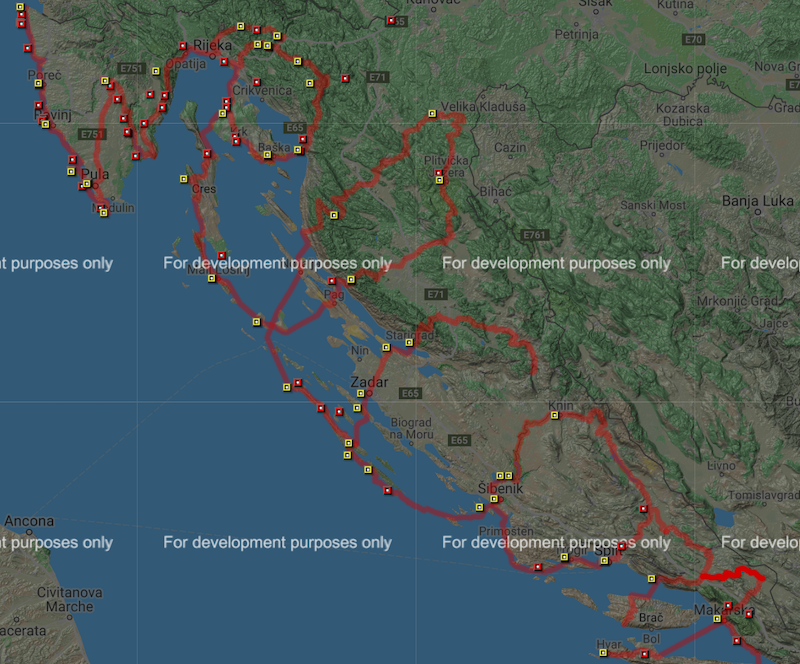
40 kilometres for the day: 35 km bike ride from Šestanovac to Imotski, followed by 5 km of alpinism at the Blue and Red Lakes in Imotski to continue forming the ‘L’ in ‘Welcome’.
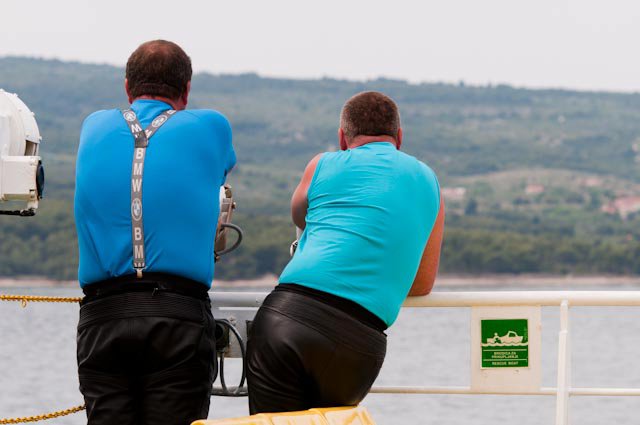
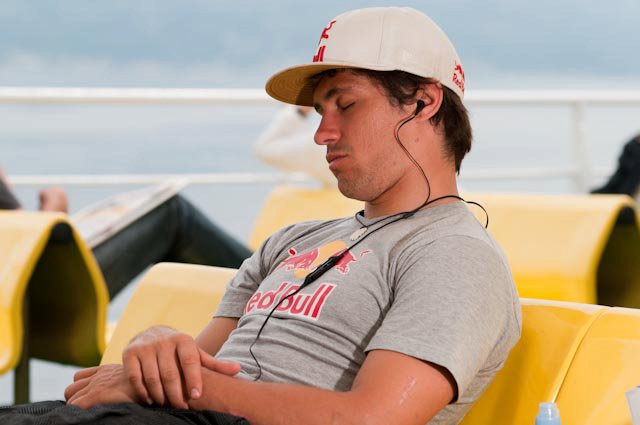
After resting on Day 41, the group began Day 42 on the ferry from Supetar to Split.
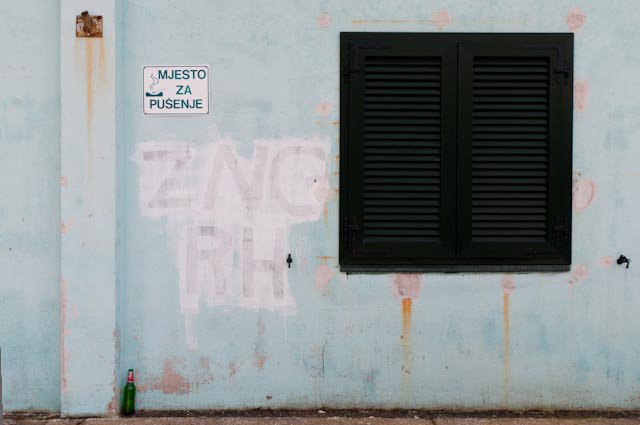
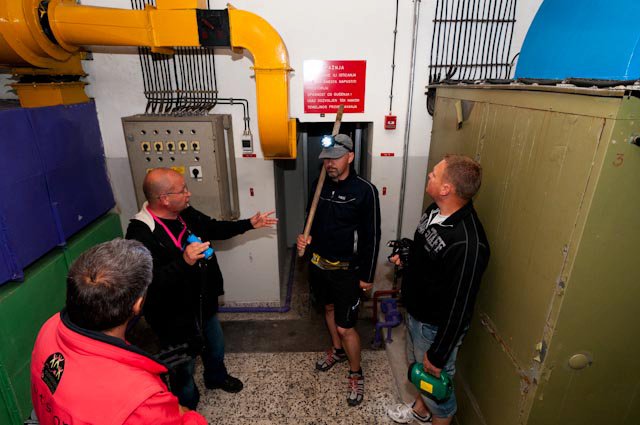
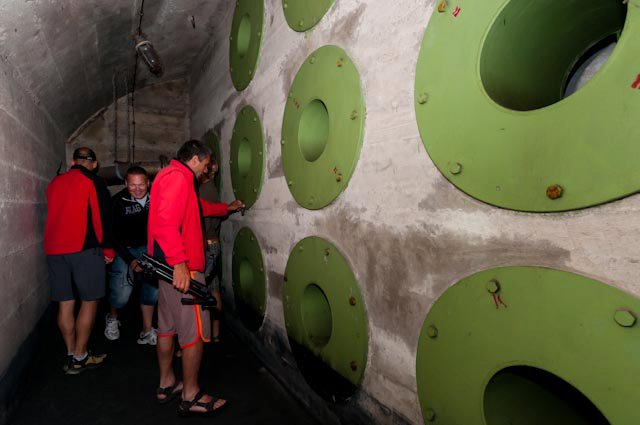
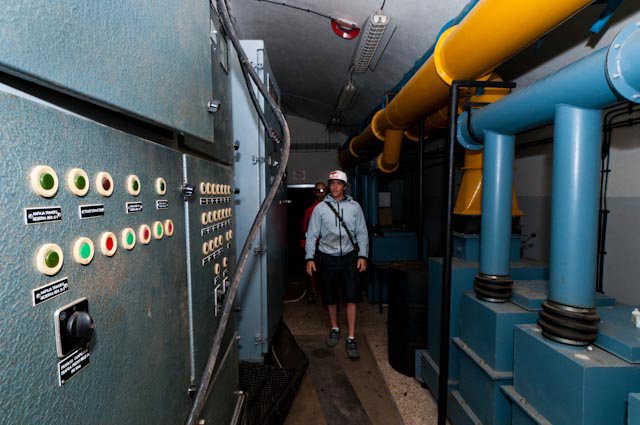
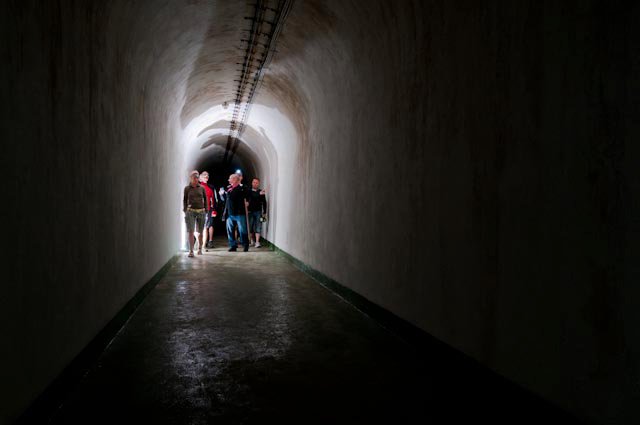
The group then explored Kuk nula, a secret atomic shelter built during Yugoslavia. It is situated near Zadvarje and could take up to 300 people in one year.
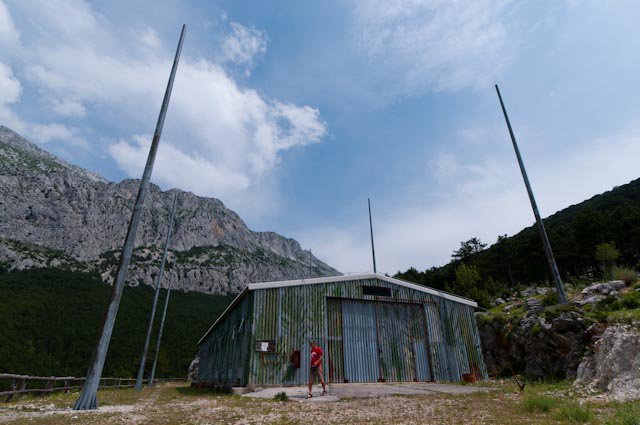
The outside of Kuk nula and the pillars which used to hold a net that served as protection from bombs.
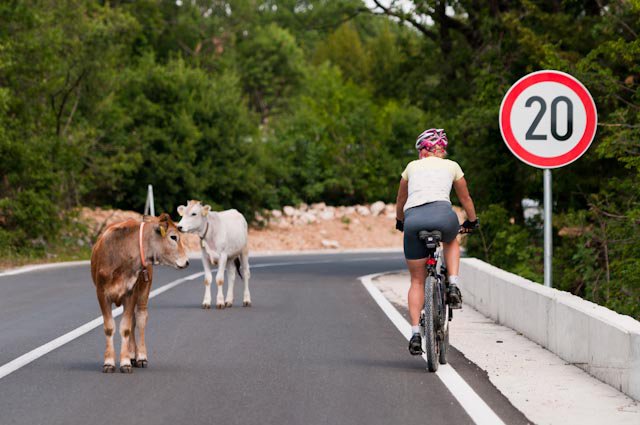
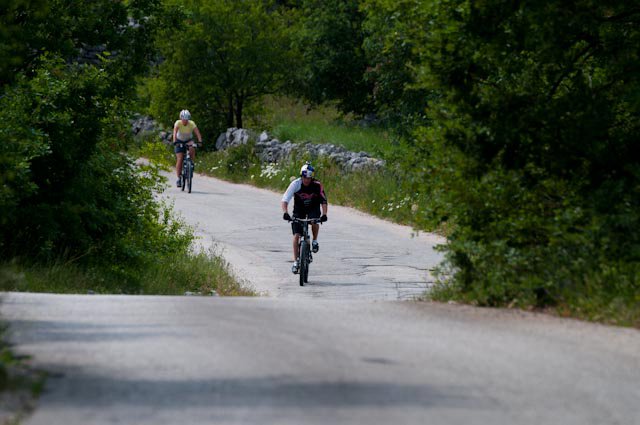
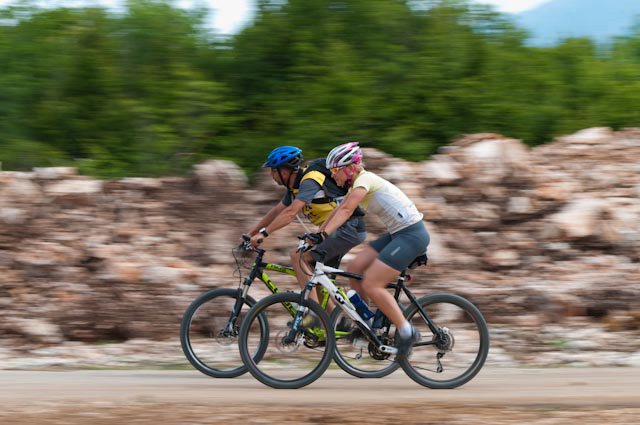
After a quick lunch, the group hopped on bikes and headed towards Imotski.
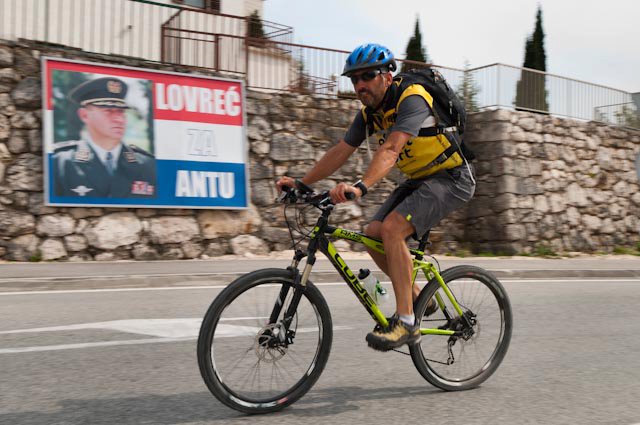
Lacko passing through Lovrec.
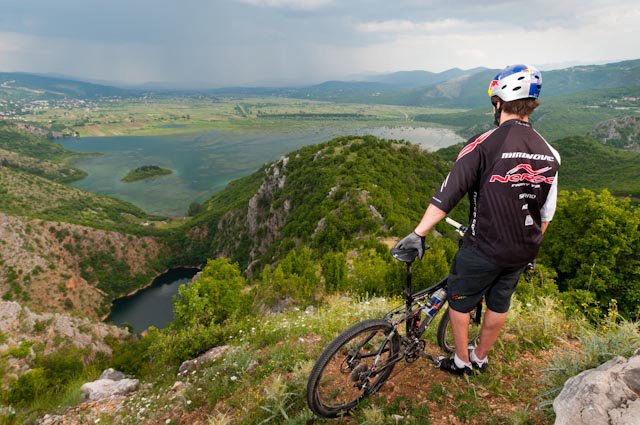
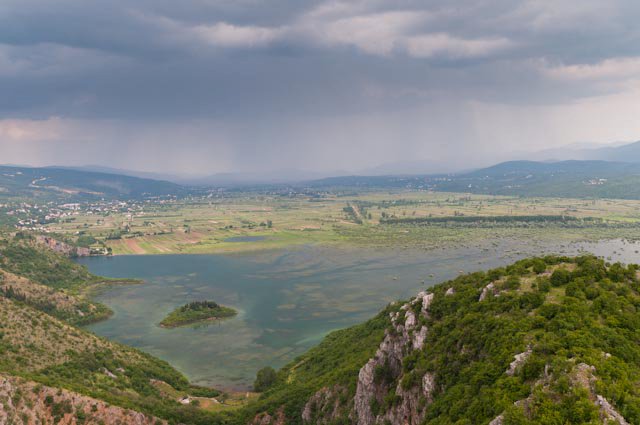
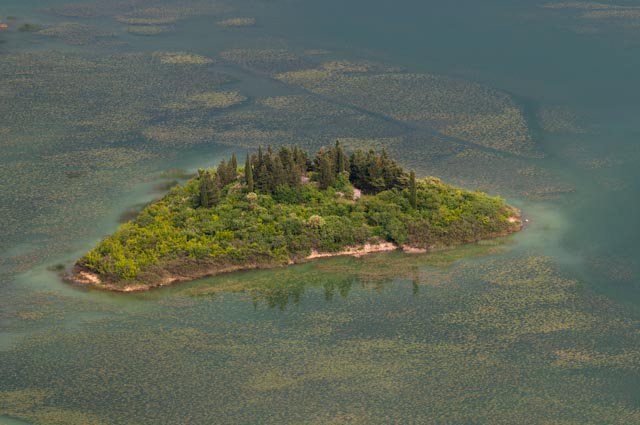
Mislav looking down at Galjipovac and Prolosko blato.
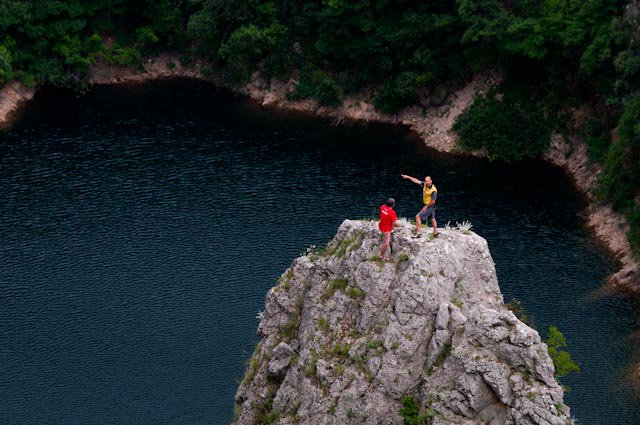
Lacko and Cedo on a steep cliff above Galjipovac.
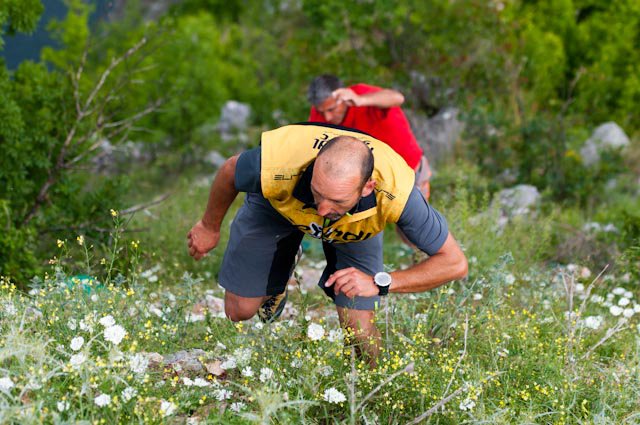
Lacko climbing back.
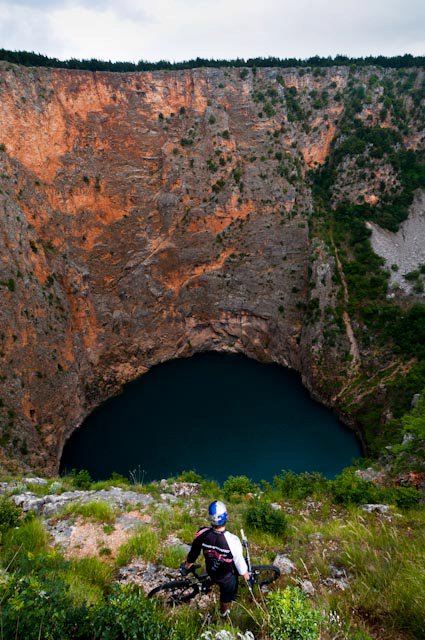
Mislav at the Red Lake.
A key part of the project was promoting tourism, and the official website has details of the key places visited during the day.
You can see the entire project on the Welcome website, as well as much more of Luka Tambaca's stunning photography on the Welcome Facebook page.
Tune in tomorrow for Day 43, as Lacko moves from Imotski to Makarska via Biokovo by bike and on foot.
To follow the whole project from the start, follow the dedicated TCN page.
Adrenaline Junkies Rope Jump Over Imotski's Red Lake (Video)
Are you looking to get your heart rate up this Monday?
New Adventure: French Diver Will Return to Red Lake in Imotski!
Remember when the first person ever dived to the bottom of the Red Lake in Imotski?
Watch Tourists Slackline Across the Red Lake in Imotski in New Promo Video!
Remember those incredible photos we shared this week of the Austrian tourists slacklining across the Red Lake in Imotski?
Drone Footage: Final Preparations for First Red Lake Dive in Imotski
Over the weekend, Frenchman Frederic Swierczynski was the first person ever to see the bottom of the Red Lake in Imotski.


